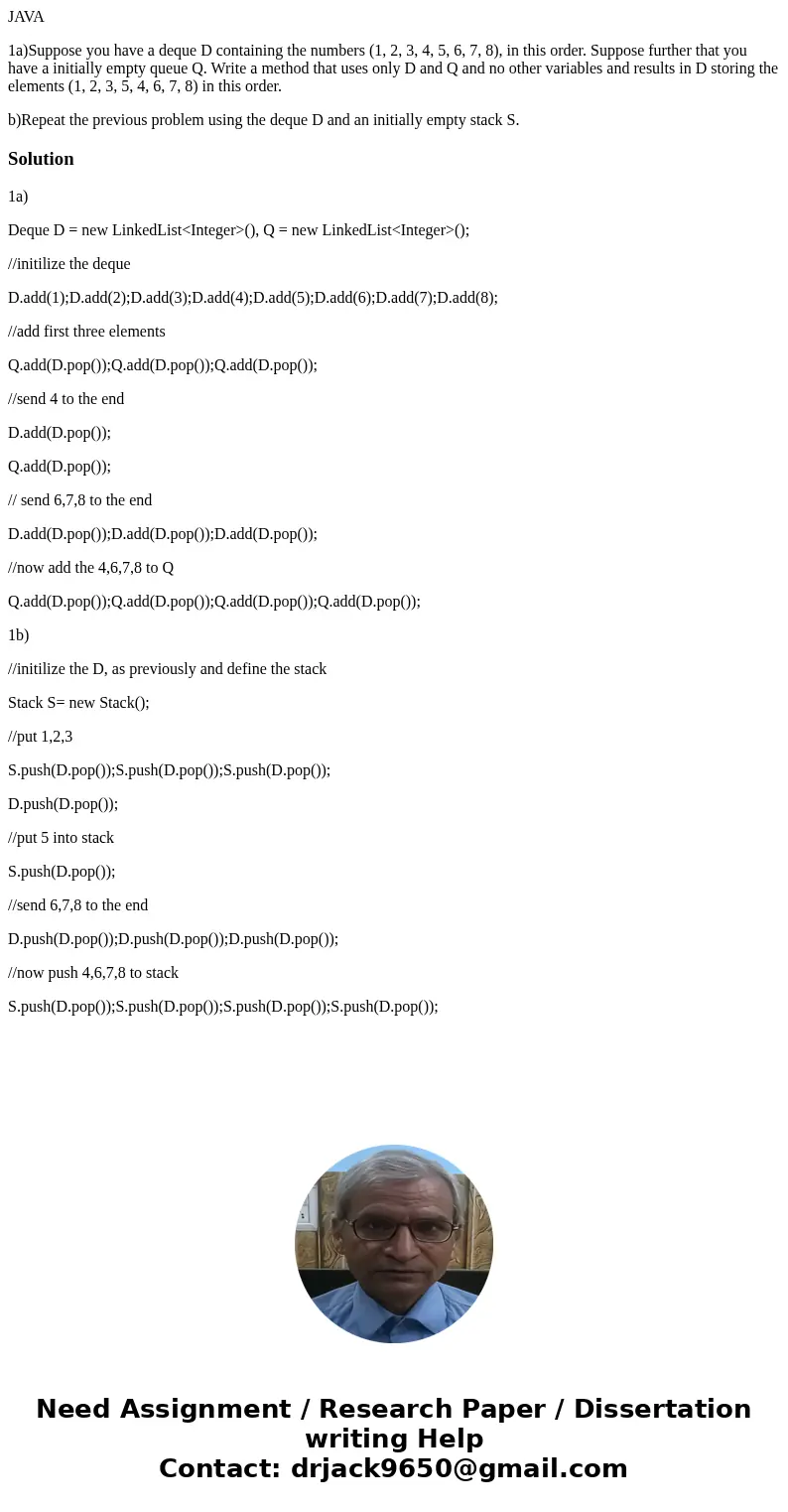JAVA 1aSuppose you have a deque D containing the numbers 1 2
JAVA
1a)Suppose you have a deque D containing the numbers (1, 2, 3, 4, 5, 6, 7, 8), in this order. Suppose further that you have a initially empty queue Q. Write a method that uses only D and Q and no other variables and results in D storing the elements (1, 2, 3, 5, 4, 6, 7, 8) in this order.
b)Repeat the previous problem using the deque D and an initially empty stack S.
Solution
1a)
Deque D = new LinkedList<Integer>(), Q = new LinkedList<Integer>();
//initilize the deque
D.add(1);D.add(2);D.add(3);D.add(4);D.add(5);D.add(6);D.add(7);D.add(8);
//add first three elements
Q.add(D.pop());Q.add(D.pop());Q.add(D.pop());
//send 4 to the end
D.add(D.pop());
Q.add(D.pop());
// send 6,7,8 to the end
D.add(D.pop());D.add(D.pop());D.add(D.pop());
//now add the 4,6,7,8 to Q
Q.add(D.pop());Q.add(D.pop());Q.add(D.pop());Q.add(D.pop());
1b)
//initilize the D, as previously and define the stack
Stack S= new Stack();
//put 1,2,3
S.push(D.pop());S.push(D.pop());S.push(D.pop());
D.push(D.pop());
//put 5 into stack
S.push(D.pop());
//send 6,7,8 to the end
D.push(D.pop());D.push(D.pop());D.push(D.pop());
//now push 4,6,7,8 to stack
S.push(D.pop());S.push(D.pop());S.push(D.pop());S.push(D.pop());

 Homework Sourse
Homework Sourse